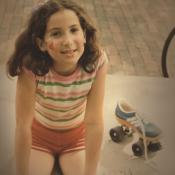 As therapists, we know the importance of addressing invisible issues such as stress, depression, and anxiety. But what about dyslexia? Let’s add this one to the list. Did you know that more than 40 million American adults have dyslexia—yet only 2 million know it? It’s likely that 1 in 10 of the people you work with in therapy will have it.
As therapists, we know the importance of addressing invisible issues such as stress, depression, and anxiety. But what about dyslexia? Let’s add this one to the list. Did you know that more than 40 million American adults have dyslexia—yet only 2 million know it? It’s likely that 1 in 10 of the people you work with in therapy will have it.
To illustrate why this matters, I’d like to share my story.
As I was growing up, my family never talked about my dyslexia. Although I got help in a public elementary school by means of a tutor named Mary, no one (including myself) understood how this was impacting my life and relationships.
While my school had a plan for me, home was a very different story. My parents separated when I was 6 months old and got a divorce when I was 6 years old. I lived with my mom and sister, who were very close and talked to each other about everything. I didn’t fit in well in our family of three. And unfortunately, no one took the time to try to understand my experience. As a result, I felt quite alone growing up.
My mother and sister were fast talkers, so their conversations flew right by me. With my unrecognized dyslexia, their joyful ritual of reading and discussing the newspaper each morning at breakfast felt like a tedious chore to me. I went off to school each morning already feeling disconnected. Family dinner conversations also felt strained and out of sync. I couldn’t remember many of the details of my day, so it was hard for me to participate and share entertaining stories the way my sister did. My mother seemed enraptured by everything my sister said. I sat silently at the table and let her do most of the talking. Each day was repetitive and lonely. Somehow my grades were always passable and I never got in trouble, so my mom seemed to think everything was fine with me. We lived in the house together like two ships passing in the night.

Sarah Entine
I had no real academic problems until I went away to Grinnell College in Iowa, far from where I grew up in Cambridge, Massachusetts. Over time, I began to feel like I was drowning … barely able to keep afloat under the pressure of my classes and sinking grades. Each semester became an endurance battle, an experience that left me feeling depleted and insecure. My mom would get my grades in the mail and immediately question my work ethic. Her mantra to me became, “Please just try, Sarah. For one semester, just try.” I was furious, seething with anger at her, because little did she know—I really was trying. It just wasn’t going very well.
And we still never talked about my dyslexia.
Even after those difficult college years were behind us, the tension persisted between my mother and me. We were not close. I felt angry and misunderstood. My mom wanted to feel connected and reassured. She needed reassurance in order to feel like everything was going to turn out all right in the end. I refused to give her any degree of satisfaction. We were stuck in the quagmire of our mutual misunderstanding.
Eventually, she suggested we see a therapist.
We met several times with an experienced counselor. We talked with him about our fights and frustrations, but we never really delved into the root of the problem. At the time, I still didn’t understand my dyslexia. While I received academic support throughout elementary school, no one ever talked to me about how this processing difference was playing out in my everyday life. In fact, to the best of my recollection the term “dyslexia” was never used. I knew I had a “learning disability” of some kind or other, but this sounded vague, and it wasn’t clear what this actually meant. Adding to that, I didn’t get any support in college, and nobody had ever suggested I needed any. I had this grave misunderstanding that whatever learning difficulty I had, maybe I had grown out of it.
So while we talked with this therapist about all sorts of topics that dealt with the stressors in our relationship, we missed the elephant in the room—namely, the legacy of dyslexia and attention-deficit hyperactivity (better known as ADHD) in our family. Here was this unique moment in time, where my mom and I chose to work on our relationship, and no one knew to talk about learning differences. What a lost opportunity!
My hope and intention is to bring more awareness and consciousness to the therapy community. Just as unrecognized addiction issues can make therapy less effective, I strongly believe that unrecognized learning differences can make therapy a superficial experience—or at the very least incomplete.
Eventually I ended up at the Simmons College School of Social Work in Boston. While I was getting my master’s degree, I visited one of the people I was helping at her home. It was like walking into my grandmother’s house. I saw total disorganization. Papers were strewn everywhere. She had trouble finding necessary everyday things—her purse, wallet, house keys. For me, that was a light-bulb moment. Whatever was troubling her was the same thing my grandmother had. It was ADHD.
Shortly thereafter, I ran into my elementary school tutor, Mary, and asked about our time together. I said to her, “I know I didn’t have dyslexia because I didn’t reverse my letters … so why did we meet?” She looked at me and said, “Oh, but Sarah, you do have dyslexia.” This was another watershed moment. I had dyslexia then, and I still have dyslexia now. It doesn’t go away. At 29 years old, I was finally beginning to understand my family and myself with clarity.
So why am I telling you this story? Realizing that many families must share multigenerational struggles with dyslexia, ADHD, and other learning challenges, I decided to make a film about my efforts to get my family to better understand dyslexia and to look at themselves as well. The result is my award-winning documentary, Read Me Differently. In addition to the film, I have put together a comprehensive viewing guide that provides detailed suggestions about how therapists can best use the film with the people they work with in therapy.
Unfortunately, for me, it wasn’t through therapy that I found insight, information, or relief. Instead, I figured it out though my own almost accidental detective work. Understanding dyslexia doesn’t have to be such an anonymous quest.
My hope and intention is to bring more awareness and consciousness to the therapy community. Just as unrecognized addiction issues can make therapy less effective, I strongly believe that unrecognized learning differences can make therapy a superficial experience—or at the very least incomplete. With more tools and information readily available, therapists can become better informed about addressing these invisible learning differences.
Dyslexia Awareness: Tips for Helping Professionals
Become more informed:
- Talk to your friends and colleagues to learn more about their experiences with dyslexia, ADHD, executive functioning, etc.
- Check out websites such as: understood.org, www.parentseducationnetwork.org, and www.eyetoeyenational.org.
- Watch films such as mine (Read Me Differently) or Being You
- Read books: too many to list!
Keep in mind that the people you work with in therapy may not know if they have learning and/or processing challenges. You may need to take the initiative to help them discover their learning difference.
Conduct a thorough intake of new clients, realizing that not all will be comfortable with filling out a written form. Note: this is a red flag! Go through a written history with the person. Ask questions:
- “Have you ever been identified with a learning difference (dyslexia, ADHD, executive function, etc.)?”
- “Is there a family history of diagnosed or undiagnosed learning differences?” Follow-up questions: “Do you or anyone in your family have trouble with reading, spelling, written communication, tracking information (i.e., working memory … remembering details, sequencing information in the right order)?”
- Ask about their school experience. “Did you ever receive extra assistance? Was school easy or hard? Did you get in trouble a lot or fly under the radar?” Explore these responses.
- “Did anyone in your family have trouble staying in school or drop out?”
- “What can you tell me about your family’s expectations for performance? How did that play out in your family? How did you compare to your siblings or friends? Do you feel like you have met your own expectations (in school, work, family, etc.)?”
- “Do you use or abuse drugs or alcohol? Is there a family history of drug use/abuse?” (This can be a coping mechanism.)
- “Is there a family history of anxiety, depression, or avoidance?”
- “How would you rate your self-esteem on a scale of 1 to 10?” (Often, self-esteem is a significant issue for this population.)
- Ask about the person’s work history. “Has there been a lot of stability on the job or have you experienced employment disruptions? What type of work do you do? Is this your top choice or do you feel like an underachiever?” (These are all ways to determine if learning differences are impacting daily life.)
- “How would you rate your communication with friends, family, and coworkers?” (ADHD, working memory, and executive functioning can impact relationships.)
October is Dyslexia Awareness Month. Let’s #saydyslexia and bring visibility to this invisible difference.
Reference:
Conolly, A. (2015). Dyslexia facts and statistics. Retrieved from http://www.austinlearningsolutions.com/blog/38-dyslexia-facts-and-statistics.html

The preceding article was solely written by the author named above. Any views and opinions expressed are not necessarily shared by GoodTherapy.org. Questions or concerns about the preceding article can be directed to the author or posted as a comment below.

 'Read Me Differently': An Interview with Sarah Entine, MSW
'Read Me Differently': An Interview with Sarah Entine, MSW The At in the hAt: Are We Viewing Learning Issues All Wrong?
The At in the hAt: Are We Viewing Learning Issues All Wrong? Same Difference: Embracing a Diversity of Learning Styles
Same Difference: Embracing a Diversity of Learning Styles

Please fill out all required fields to submit your message.
Invalid Email Address.
Please confirm that you are human.
Leave a Comment
By commenting you acknowledge acceptance of GoodTherapy.org's Terms and Conditions of Use.